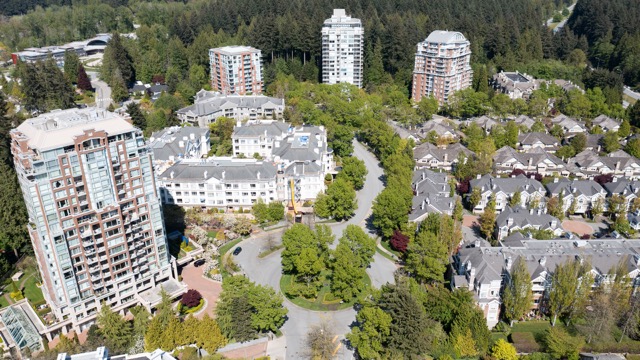The UBC Board of Governors has now submitted its controversial land use plan to the provincial government.
A spokesperson with the Ministry of Municipal Affairs told The Campus Resident its review is expected to take several months and noted that it can “either adopt or reject the plan as submitted.”
The board voted Dec. 5 to adopt the 2050 Campus Vision plan, which would more than double the population of the university neighbourhoods and give the Point Grey Peninsula a population density double that of downtown Vancouver.
The university calls the plan “a balanced approach to meeting a range of university and community priorities over the next 30 years.”
The ministry said it will “assess the plan’s alignment with recent housing density legislation and legislation on the designation of transit-oriented areas, as well as consideration of other transit and infrastructure concerns.”
Richard Watson, chair of the University Neighbourhoods Association, said he would applaud the province if it asked UBC to re-examine the plan given the criticism the plan has faced.
“Ultimately I’m not sure the LUP (land use plan) will enable the building of livable neighbourhoods, with ample green space, ecological integrity, effective transportation corridors, and services that are the basis of thriving communities,” Watson said. “We’re disappointed that the LUP didn’t include more rental housing, and stronger commitments to addressing the climate emergency.”
Following a November public hearing where the plan came under sustained criticism, the board did make minor changes. “The board acknowledged concerns highlighted by the community during the public hearing regarding climate action, governance and housing,” Madeleine Zammar, the engagement manager of the university’s campus and community planning unit, said in an email.
Several interventions at the public hearing and at the Dec. 5 board meeting noted that the Board of Governors is not suited to running a municipality that is now about the size of Comox and by 2050 would be the size as of 2022 of Port Moody or Penticton.
Anna Kindler, a member of the board and a professor in the education faculty, told her fellow board members on Dec. 5 that the board should consider the “ability and capacity of a small group of volunteers to effectively manage not just the affairs of a university but also to serve as a de facto municipal council for a large complex city.”
Is UBC “ready and able to manage a city” of the size envisioned in the land use plan, she asked at an earlier board meeting Oct. 16.
Claire England, a resident of the university neighbourhoods, told the public hearing that campus residents have no say on the plans that affect them. “Governance,” she said, “is the elephant in the room.”
Watson quoted fellow UNA director Murray McCutcheon, saying the Board of Governors “is not accountable to community concerns, and … ultimately does not serve the long-term needs of the university or this burgeoning municipality.”
Zammar wrote in her email that the university “will receive information on the status of UBC’s unique local governance arrangement and develop a process to explore its continued evolution.”
The university did not say if that process would involve the province, which would almost certainly be involved in any governance changes.
In 2022, the municipal affairs ministry published a study looking at governance issues in the University Endowment Lands, an area bordering the UBC campus that is administered by the provincial government. But unlike the university neighbourhoods, the endowment lands have a much smaller population of about 3,200.
So far, the government has not initiated a similar study for the UBC campus, and the ministry said it is “not currently considering issues related to UBC land governance beyond the scope of the land use plan report.”
Critics had complained that the university’s proposed Neighbourhood Climate Action Plan should be developed before, and not after, the land use plan takes effect. The board responded by promising that UBC will not begin any new neighbourhood construction until the action plan is completed.
Some of the loudest voices at the public hearing criticized the university for making a priority of market-based housing on university-owned land, rather than providing affordable housing for students, staff and faculty.
The board acknowledged the criticism but added that it can only add on-campus housing if it has the funds to do so, and for that it relies on its land base to generate revenue. The board also said it would work with the provincial government on financing to build more affordable student housing at a faster pace.
The board did amend the plan with a promise to make net additions to the tree canopy on campus in line with Metro Vancouver’s tree canopy targets.
It also agreed to increase open space, as there had been criticism that the plan’s target of 0.5 hectares for every 1,000 people was below the recommendation set by the World Health Organization. The amended plan sets a requirement for usable neighbourhood open space to between 0.7 hectares and 1.1 hectares for every 1,000 people.
WARREN CARAGATA IS A MEMBER OF THE CAMPUS RESIDENT EDITORIAL COMMITTEE.
